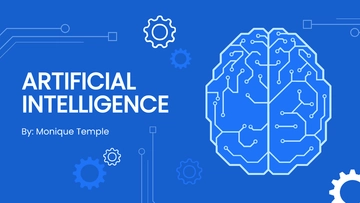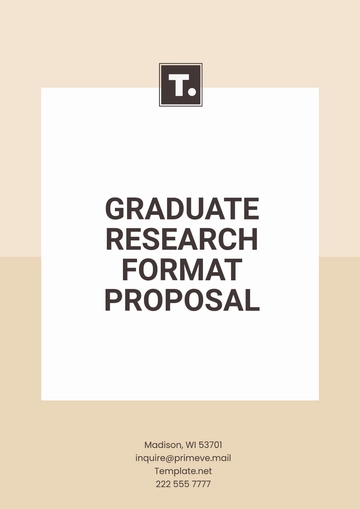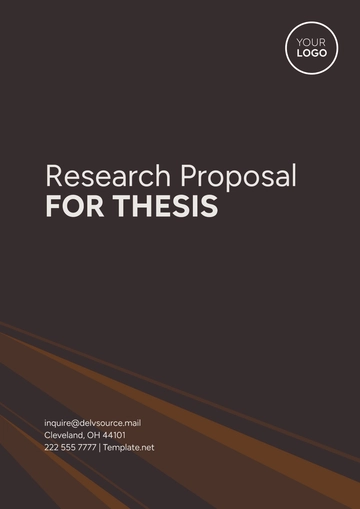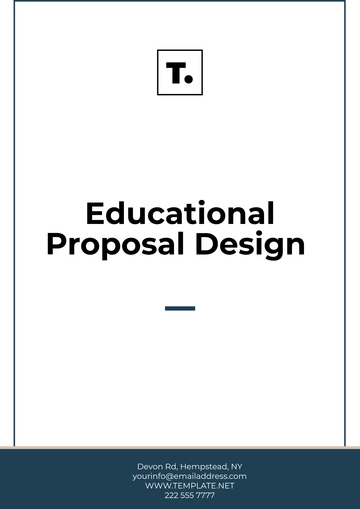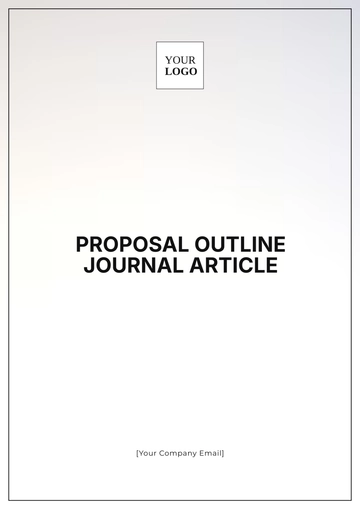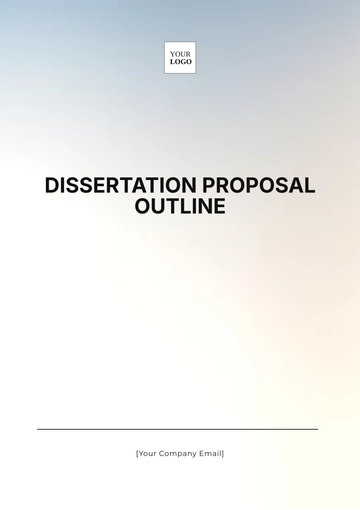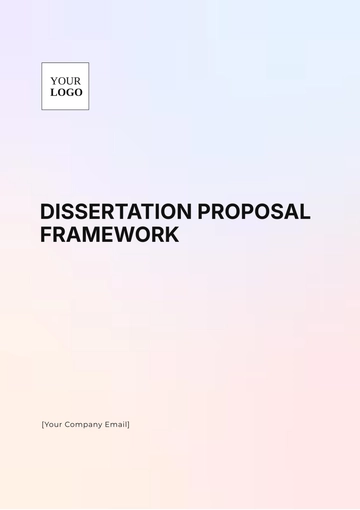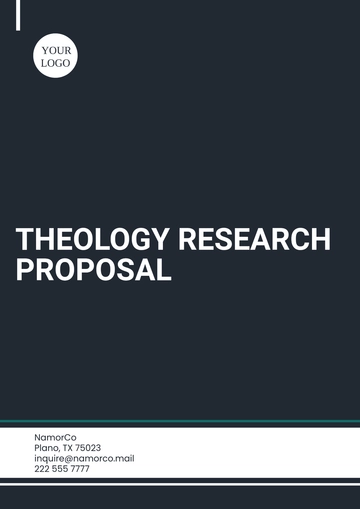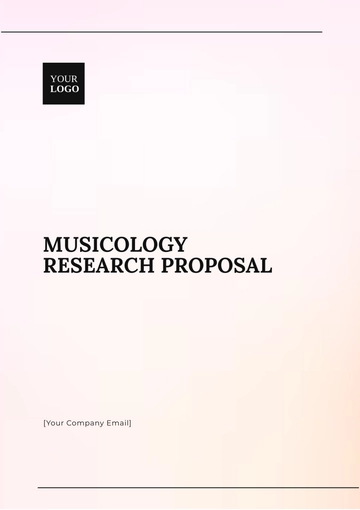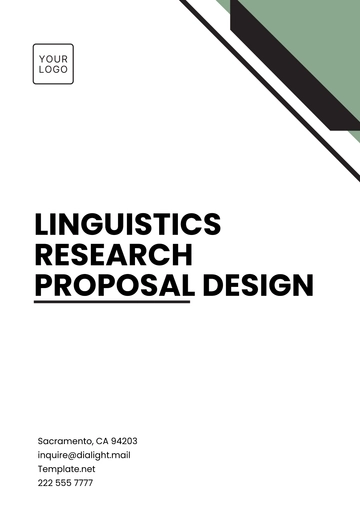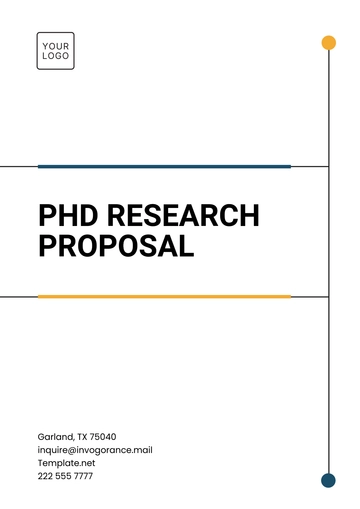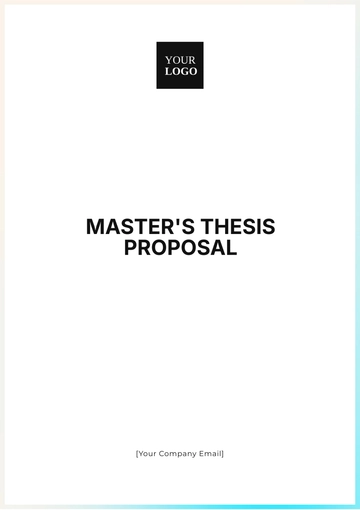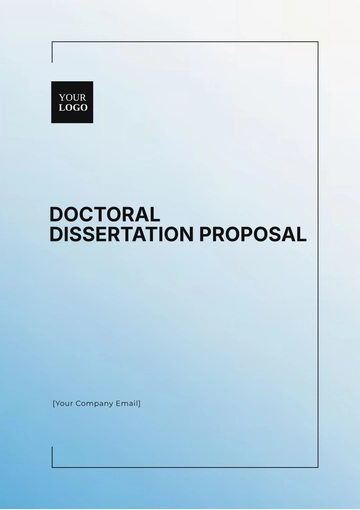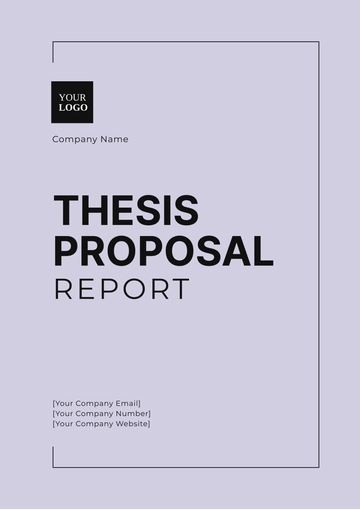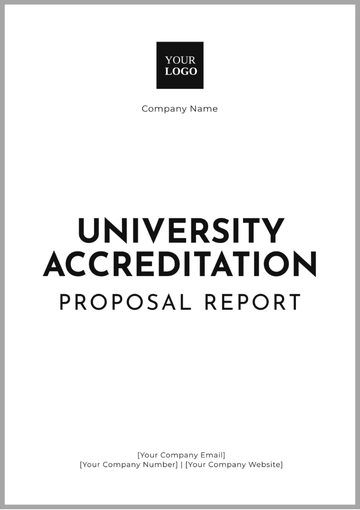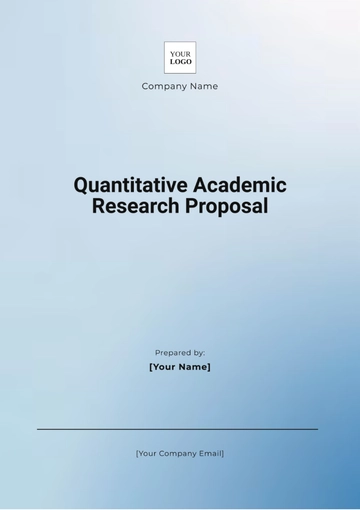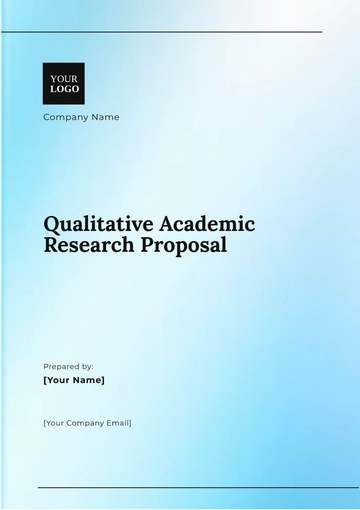Free Musicology Research Proposal
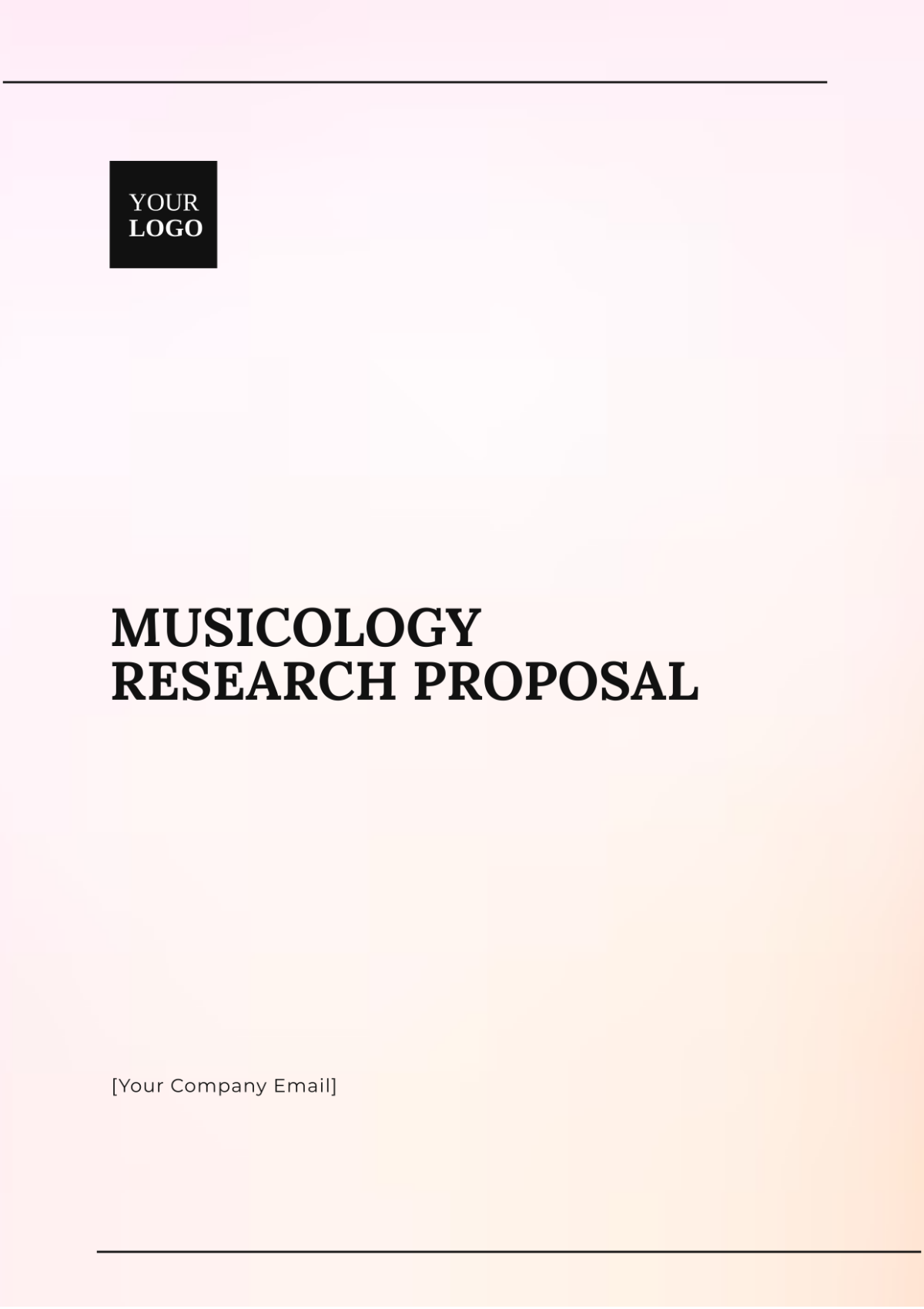
Researcher: [Your Name]
Date: [Date]
I. Abstract
This research proposal investigates the influence of folk traditions on contemporary Western classical music, focusing on how these traditions have been integrated into modern compositions. The study will analyze the historical interactions between folk and classical music, examine case studies of notable composers, and explore current trends in the incorporation of folk elements into classical works. Through archival research, musical analysis, and interviews with contemporary composers, this research aims to offer a comprehensive understanding of the dynamic relationship between these musical traditions and their impact on contemporary classical music.
II. Introduction
The relationship between folk traditions and Western classical music has been a fascinating area of study for musicologists. Historically, folk music—rooted in the oral traditions of various cultures—has significantly influenced classical composers, enriching their compositions with diverse rhythms, melodies, and harmonies. This research aims to explore the ways in which folk traditions have been assimilated into classical music, both in the past and in contemporary settings. By investigating how folk elements have been used to innovate and diversify classical music, the study will provide insights into the ongoing dialogue between these two musical worlds.
III. Literature Review
The impact of folk music on Western classical compositions has been well-documented, with significant contributions from scholars and practitioners. Béla Bartók, for example, is renowned for his extensive fieldwork in Eastern European folk music and its subsequent integration into his classical compositions. His work, such as Music for Strings, Percussion, and Celesta, showcases the incorporation of folk melodies and rhythms into classical frameworks. Similarly, Igor Stravinsky’s ballets like The Rite of Spring reflect the influence of Russian folk music, incorporating primitive rhythms and melodies into avant-garde classical structures.
Recent literature expands this historical perspective to include contemporary composers who continue to draw on folk traditions. For instance, Jennifer Higdon’s compositions often feature folk-inspired themes, blending them with modern classical techniques. Scholars like John H. Smith and Emily Davis have explored these contemporary integrations, emphasizing the evolving nature of this cross-genre influence. Despite these contributions, gaps remain in understanding how these folk elements affect audience perception and the broader classical music landscape.
IV. Research Objectives
Historical Context: To analyze the historical influence of folk traditions on Western classical music, identifying key composers and works that exemplify this integration.
Contemporary Practices: To investigate how contemporary composers incorporate folk elements into their music, examining specific compositions and their reception.
Audience Impact: To assess the impact of folk-influenced classical music on audiences and critics, exploring how these elements are perceived and valued.
Theoretical Contribution: To contribute to the theoretical understanding of the interaction between folk and classical music, offering new perspectives on their ongoing relationship.
V. Methodology
Archival Research: This will involve a detailed examination of historical records, scores, and manuscripts to trace the evolution of folk influences in classical music. Key sources will include archives of major composers known for integrating folk music, as well as historical performance reviews and critical essays.
Musical Analysis: A thorough analysis of selected compositions will be conducted to identify and interpret the folk elements present. This will include melodic, harmonic, rhythmic, and structural analyses of works by both historical and contemporary composers.
Interviews: Interviews with contemporary composers who incorporate folk traditions into their music will provide firsthand insights into their creative processes and the challenges and benefits of blending these musical styles. These interviews will be transcribed and analyzed for recurring themes and perspectives.
Case Studies: Specific case studies will be developed to illustrate how particular compositions have successfully integrated folk elements. These case studies will focus on both historical examples and contemporary works, highlighting their significance and impact.
VI. Significance
This research is significant as it deepens our understanding of how folk traditions influence Western classical music, both historically and in the present day. By examining the integration of folk elements into classical compositions, the study will highlight the richness and diversity of classical music and offer insights into how these influences continue to shape its development. For composers, educators, and musicologists, this research will provide valuable knowledge on the creative possibilities and historical contexts of blending folk and classical music.
VII. Timeline
Month 1-2: Conduct literature review to refine research questions and framework. Identify key composers, works, and scholarly sources for analysis.
Month 3-4: Perform archival research, focusing on historical documents, scores, and manuscripts. Begin musical analysis of selected compositions.
Month 5-6: Conduct interviews with contemporary composers. Continue musical analysis and start drafting initial findings.
Month 7-8: Develop and write case studies. Analyze interview data and integrate findings with musical analysis.
Month 9: Draft and review research findings. Prepare final report, including a comprehensive synthesis of historical and contemporary perspectives.
Month 10: Finalize and submit the research report, including revisions based on feedback from peers and advisors.
VIII. References
Bartók, Béla. Folk Music of Eastern Europe. Boosey & Hawkes, 2050.
Stravinsky, Igor. Poetics of Music. Harvard University Press, 2055.
Smith, John H. Contemporary Composers and Folk Influences. Oxford University Press, 2060.
Brown, Thomas. The Integration of Folk Music into Western Classical Tradition. Cambridge University Press, 2065.
Davis, Emily. Modern Classical Music: A Study of Folk Traditions. Routledge, 2070.
- 100% Customizable, free editor
- Access 1 Million+ Templates, photo’s & graphics
- Download or share as a template
- Click and replace photos, graphics, text, backgrounds
- Resize, crop, AI write & more
- Access advanced editor
Elevate your musicology research with our editable and customizable Musicology Research Proposal Template from Template.net. This template helps you articulate your research goals, literature review, and analysis framework effectively. Editable in our AI Editor Tool, it provides flexibility to tailor your proposal, making it a perfect fit for your unique study.
You may also like
- Business Proposal
- Research Proposal
- Proposal Request
- Project Proposal
- Grant Proposal
- Photography Proposal
- Job Proposal
- Budget Proposal
- Marketing Proposal
- Branding Proposal
- Advertising Proposal
- Sales Proposal
- Startup Proposal
- Event Proposal
- Creative Proposal
- Restaurant Proposal
- Blank Proposal
- One Page Proposal
- Proposal Report
- IT Proposal
- Non Profit Proposal
- Training Proposal
- Construction Proposal
- School Proposal
- Cleaning Proposal
- Contract Proposal
- HR Proposal
- Travel Agency Proposal
- Small Business Proposal
- Investment Proposal
- Bid Proposal
- Retail Business Proposal
- Sponsorship Proposal
- Academic Proposal
- Partnership Proposal
- Work Proposal
- Agency Proposal
- University Proposal
- Accounting Proposal
- Real Estate Proposal
- Hotel Proposal
- Product Proposal
- Advertising Agency Proposal
- Development Proposal
- Loan Proposal
- Website Proposal
- Nursing Home Proposal
- Financial Proposal
- Salon Proposal
- Freelancer Proposal
- Funding Proposal
- Work from Home Proposal
- Company Proposal
- Consulting Proposal
- Educational Proposal
- Construction Bid Proposal
- Interior Design Proposal
- New Product Proposal
- Sports Proposal
- Corporate Proposal
- Food Proposal
- Property Proposal
- Maintenance Proposal
- Purchase Proposal
- Rental Proposal
- Recruitment Proposal
- Social Media Proposal
- Travel Proposal
- Trip Proposal
- Software Proposal
- Conference Proposal
- Graphic Design Proposal
- Law Firm Proposal
- Medical Proposal
- Music Proposal
- Pricing Proposal
- SEO Proposal
- Strategy Proposal
- Technical Proposal
- Coaching Proposal
- Ecommerce Proposal
- Fundraising Proposal
- Landscaping Proposal
- Charity Proposal
- Contractor Proposal
- Exhibition Proposal
- Art Proposal
- Mobile Proposal
- Equipment Proposal
- Student Proposal
- Engineering Proposal
- Business Proposal
